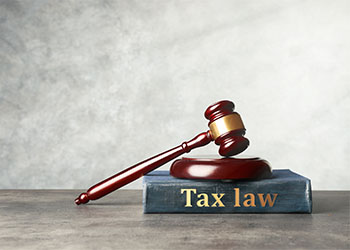Tax Issues: Which Chapter to Choose
July 21, 2023
 Do you owe back taxes to the Internal Revenue Service (IRS) and wonder if filing for bankruptcy can make your tax debt go away? Millions of Americans owe back taxes, and filing for bankruptcy is often one of the options to clear tax debt. However, everyone’s situation is unique, which is why you may not know which chapter to choose if your goal is to eliminate tax debt.
Do you owe back taxes to the Internal Revenue Service (IRS) and wonder if filing for bankruptcy can make your tax debt go away? Millions of Americans owe back taxes, and filing for bankruptcy is often one of the options to clear tax debt. However, everyone’s situation is unique, which is why you may not know which chapter to choose if your goal is to eliminate tax debt.
Our bankruptcy attorney at Vivona Pandurangi, PLC, understands that tax issues can make filing for bankruptcy more complicated. Get a free consultation with our attorney to discuss your particular case. We have offices in Alexandria and Falls Church, Virginia, but serve clients in the surrounding area, including Fairfax, Arlington, Manassas, and throughout Prince William County, Loudoun County, Fairfax County, and Arlington County.
Can You Eliminate Tax Debt Through Chapter 7 Bankruptcy?
Tax debt is not treated the same as other consumer debts when it comes to filing for bankruptcy. For this reason, tax debt cannot always be eliminated – or discharged – through bankruptcy. However, it may be possible to discharge tax debt through Chapter 7 bankruptcy when the following criteria are met:
The debt is for income taxes. Only income taxes are eligible for discharge, while property and other types of taxes are not.
The tax debt is at least three years old. If your tax debt is less than three years (36 months) old, it cannot be discharged. Tax debt may be dischargeable if that debt is at least three years old.
A tax return was filed. You must demonstrate proof that you filed a tax return for the debt to be discharged and that the return was filed at least two years (24 months) before the date your bankruptcy petition is filed.
The debt passes the 240-day rule. If you wish to eliminate tax debt, you must prove that the IRS has assessed your debt at least 240 days (about 8 months) prior to filing for bankruptcy.
No fraudulent activity. The IRS will also have to confirm that you did not engage in any fraudulent activity in an attempt to evade paying your taxes.
If your tax debt meets the above-mentioned criteria, it may be discharged as unsecured debt in Chapter 7 bankruptcy. If it doesn’t, you will have to pay back your tax debt, even if you file for bankruptcy.
Can You Eliminate Tax Debt Through Chapter 13 Bankruptcy?
If you file under Chapter 13, you will have to pay back your unsecured nonpriority debt during your repayment plan, which lasts from three to five years. Whatever amount is not paid back throughout the repayment plan can be discharged.
When debts are discharged in a Chapter 13 bankruptcy, they do not incur additional penalties and interest. If you file for bankruptcy under Chapter 13, the IRS must abide by your repayment plan as long as you include all income in the plan and you comply with your current tax obligations.
Can Federal Tax Liens Be Discharged Through Bankruptcy?
Many Americans who have tax debt also struggle with federal tax liens, which are legal claims against a taxpayer’s property for failure to pay a tax debt. The problem with federal tax liens is that they usually cannot be discharged from the property. However, once a bankruptcy is filed, the IRS will not be able to pursue the debtor for an additional amount beyond the value of the property.
Even if your tax debts qualify for discharge through Chapter 7 bankruptcy, it does not affect the status of the federal tax liens. You will have to pay off the lien if you want to sell your property in the future. However, with a skilled attorney on your side, you may be able to get a lien removed when certain conditions are met (e.g., the lien is at least 10 years old or there were errors in the filing of the lien).
Rely on Experienced Legal Counsel
If you owe back taxes or have other tax issues, you need to speak with someone who can help you explain how filing for bankruptcy can improve your situation. Request a free consultation with our attorney at Vivona Pandurangi, PLC, to explore all available options for tax debt relief in your specific case.
